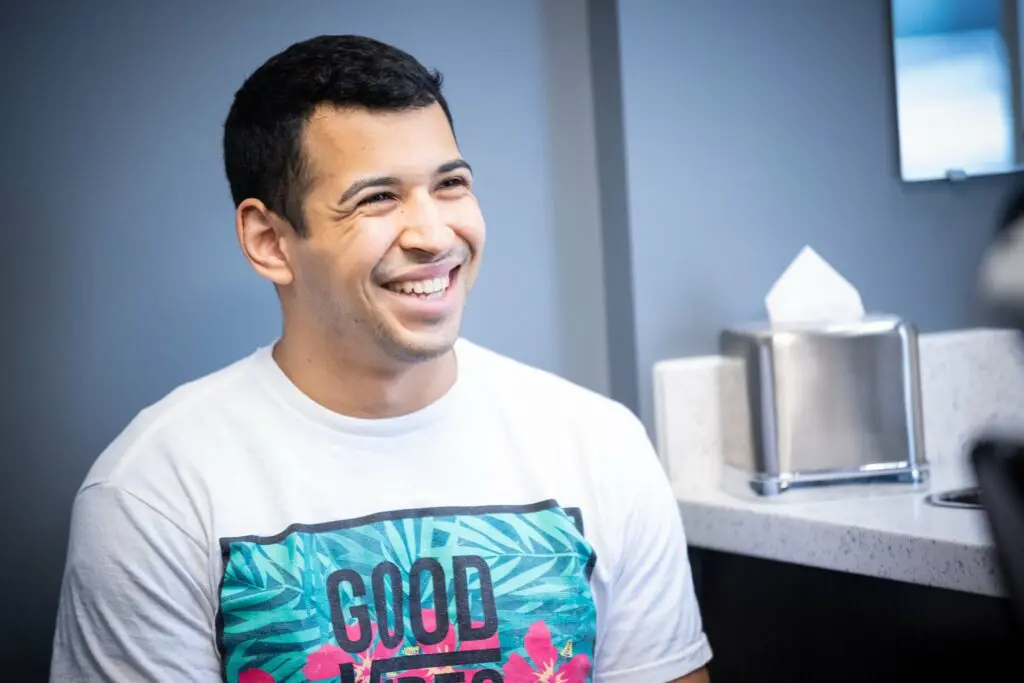Visit Us
Choosing to undergo orthodontic treatment with braces or aligners is a big deal and an investment of your time and finances. Once you see your brand new smile, it feels like a huge accomplishment—and it is! As you leave your orthodontist’s office with the retainer they’ve given you in hand, you know you won’t have any trouble wearing it exactly the way you’re supposed to. And for a long time, you do. Over time, however, you may leave it out overnight a time or two or forget it for a couple of weeks at a time. Then one day, you wake up and realize that you aren’t even sure when you last saw it!
For most former patients, this is a bit of a wake-up call. You probably set a reminder to phone the orthodontist’s office so you can replace your missing retainer. But life gets in the way, and before you know it, more time has passed. That’s when you notice your smile doesn’t feel quite the same as it did before. You check it out and realize, to your dismay, that your straightened teeth have shifted and started moving back towards their old positions in your mouth. What happens now?!
If this scenario sounds familiar, don’t worry–you’re not alone. Dr. Larry Majznerski sees many adult patients here at Align Orthodontics who are dealing with this same situation. He has many years of experience in successfully using Invisalign as a touch-up treatment to correct orthodontic relapse! If your smile isn’t what it used to be, and you’re ready to get it back on track, we can help. Let’s take a closer look at what an orthodontic relapse actually is and how our expert team can restore your smile—and your confidence!
We use the term “orthodontic relapse” to describe the tendency our teeth have to return to the position they were in before orthodontic treatment. A short-term relapse happens less than one year after completing treatment, while a long-term relapse occurs more than a year after finishing treatment.
Orthodontic relapse is not uncommon by any means. In fact, close to half of all orthodontic patients experience some level of relapse within ten years or so of completing their treatment. This statistic has caused the orthodontic field to reconsider its approach to retainer wear in recent years. Many adults who have dealt with relapse were told as teens that they could discontinue wearing their retainer after a year or two. In contrast, most orthodontists now agree that adults should actually wear retainers at least part-time for life.
We know that kind of commitment might sound scary! But in most cases, once a period of adjustment has passed, you will only need to wear your retainer at night to keep your newly straightened smile in place.








There are actually several reasons that your teeth may shift after treatment, but the most common one is irregular retainer use. Unfortunately, many people underestimate the importance of retainers, especially if it’s been a while since treatment has concluded. However, treatment doesn’t stop just because your braces come off or your aligners run out!
Once the active phase of treatment is complete, the teeth and surrounding bone and gums will still need time to solidify in their new locations. Wearing a retainer as directed will help protect the teeth from the forces always trying to pull them back to their previous positions. It also assists with long-term stabilization.
Other reasons for an orthodontic relapse can include:
Teeth grinding
If you grind your teeth, you’re likely already aware of some of the damage it can cause! Chronic tooth grinding produces a continuous force that can place a strain on your teeth over time. It even has the ability to alter your bite and cause misalignment eventually.
Tooth loss
If you’ve lost one or more teeth due to trauma, decay, or periodontal disease, the teeth surrounding that space may begin to drift towards it. If this is left uncorrected for a long enough period of time, it can eventually lead to a misaligned bite.
Genetics and natural aging
Even those gifted with a beautiful natural smile by genetics may notice their teeth shifting a bit as they grow older. This is a common occurrence, especially in the front teeth, which tend to be more susceptible to shifting under pressure due to the thinning enamel.

When it comes to addressing an orthodontic relapse, we have a few different options available, depending on the severity of the case.
Monitoring the teeth
Minor tooth movement will occur for everyone at some point, even with good genes, the best retainer, and complete compliance after orthodontic treatment. That’s because the bone and gums that support your teeth change as you age, causing teeth to shift naturally. Retainers can also become slightly distorted with wear and become less effective over time.
If you’ve worn your retainer exactly as directed and we observe only minor shifting of your teeth, we may be able to leave things as they are for the time being and monitor your teeth for any further shifting.
Creating a new retainer
We'll want to treat some types of minor movements, and these can often be corrected with a new or replacement retainer. If you’ve lost or broken your previous retainer, this will be one of the first things we do! Generally speaking, fixed retainers are good for maintaining the alignment of the lower teeth, while removable aligners will usually be recommended for the upper teeth.
Re-treatment
If Dr. Majznerski discovers a significant orthodontic relapse during your consultation, he may recommend retreatment. Align Orthodontics is West Michigan’s only orthodontic office designed exclusively for adults, so our team is incredibly skilled and experienced in treating relapse patients. Dr. Majznerski recommends Invisalign for all adults in need of treatment, offering a discreet alternative to traditional braces that our patients love!
Whatever the reason behind your orthodontic relapse, our expert team is here to help you rediscover a straighter, healthier smile. To learn more about adult treatment for an orthodontic relapse, get in touch today to schedule your initial consultation!